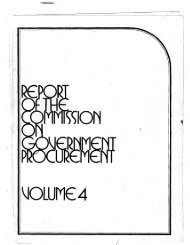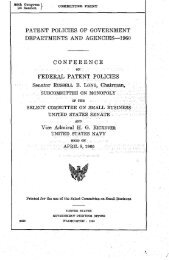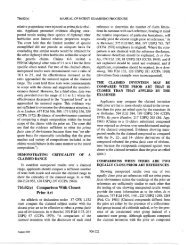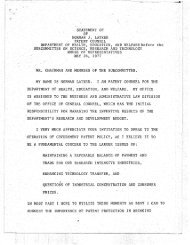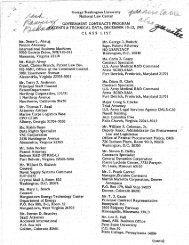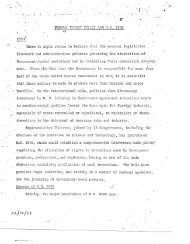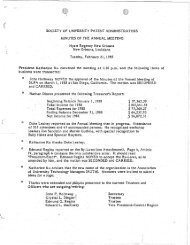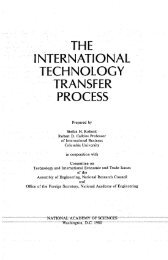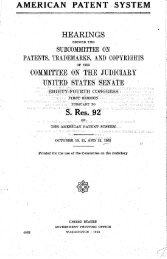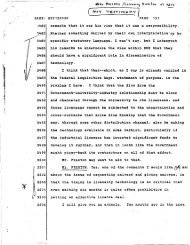~Iri,n - Bayhdolecentral
~Iri,n - Bayhdolecentral
~Iri,n - Bayhdolecentral
You also want an ePaper? Increase the reach of your titles
YUMPU automatically turns print PDFs into web optimized ePapers that Google loves.
MichaelJ. Remington, JO I 19<br />
academic institutions, who claim that the Jeffersonian coat no longer fits the<br />
man. Among others:<br />
• Drug-price advocate James Love demeans current practices, stating,<br />
"the taxpayers pay for the invention of a promising treatment ... then<br />
give a marketing monopoly to one company .... And the company's<br />
role is? To agree to sell it back to US."15<br />
• Harvard Medical School professor emeritus Arnold Rehnan and senior<br />
lecturer Marcia Angell opine that "whether the Bayh-Dole Act has been<br />
an overall success is [questionable]."16<br />
• Economist Richard R. Nelson, professor of international and pnblic<br />
affairs, business, and law at Columbia University, argues that "univer<br />
sities have become extraordinarily greedy and aggressive in prosecuting<br />
their patents and, in the process, have backed away from their responsibilities<br />
as defenders of open science. "17<br />
Questions about the act are not only stimulated by the spirit of keeping<br />
pace with the times. Opposition to the act stems from a mistrust of the patent<br />
law and property rights, an arguable lack of objective economic standards to<br />
measure the success (or failure) of intellectual property statutes, societal<br />
concerns about escalating drug prices, a growing worry that universities are<br />
for sale, and a fear that we, as a country, are tilting toward an "anticommons."<br />
Nonetheless, an examination of the act, using the act's statutory objec<br />
tives as a benchmark, shows that it is as good as the day it was tailored in<br />
1980, with minor alterations in 1984. It not only goes hand in hand with<br />
the progress of the human mind, but it promotes advances to knowledge.<br />
Social, economic, and academic anxieties no doubt exist, caused by tremen<br />
dous changes in the nation's material well-being. These anxieties are deserving<br />
of full consideration, but they are not enough to turn back "the full tide of<br />
successful experiment."!" Upon the success of the Bayh-Dole experiment,<br />
too much depends.<br />
Challenges to the Bayh-Dole Act Can Be Cataloged<br />
Today, teclmology transfer is a major effort in the academic environment.<br />
More than 230 U.S. universities and colleges have technology transfer<br />
offices. In the face of great complexity and breadth, success has not been<br />
uniform. Although the number of academic technology transfer entrants<br />
with little experience in patenting and licensing is growing, as an expression



